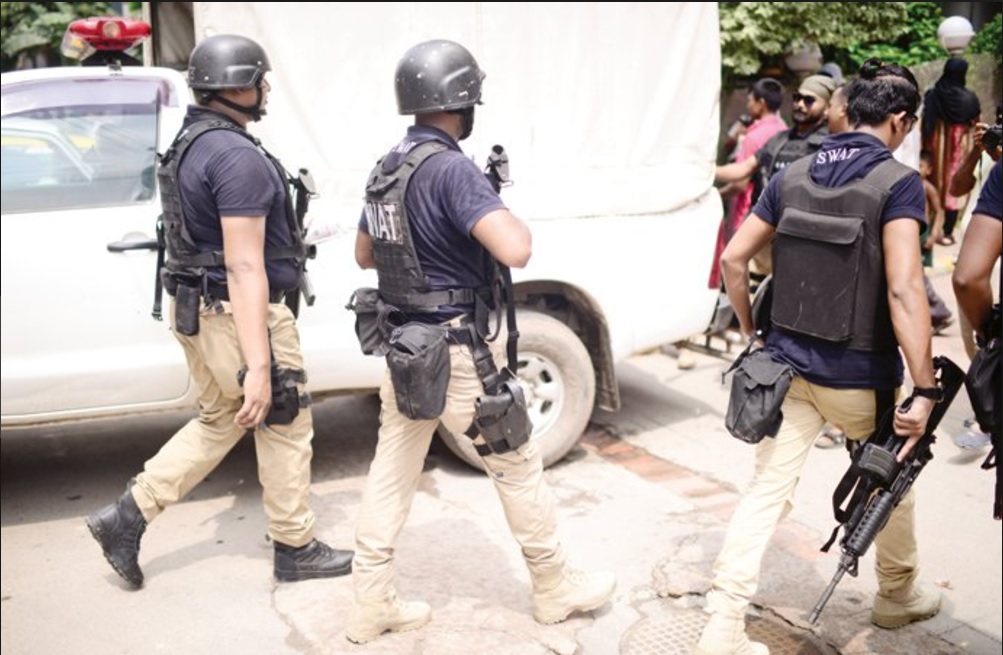Bangladesh: 56pc militants come from general schools
80 percent of those with religious extremists and terrorists were radicalised online through various social media platforms, study says- Nayadiganta English Desk
- 24 June 2019, 19:03

Despite common perception in Bangladesh that people linked to religious-based madrasa education, police study shows that 56 percent of those involved in militancy have general education background, local media reports said.
“Among the arrestees, 56% are from general educational background, and 22% are from madrasa background, respectively, with the remaining 22% being either uneducated or from English medium background,” additional deputy inspector general (DIG) of police Md Moniruzzaman was quoted by the Dhaka Tribune as saying.
The study was unveiled at a seminar titled “Preventing Terrorism and Extremism through Community Engagement” in capital city Dhaka on Saturday.
The police headquarter conducted the study based on a sample of 250 people, arrested between 2015 and 2017 for their involvement in militancy, he said.
“Among the arrestees, 56% are from general educational background, and 22% are from madrasa background, respectively, with the remaining 22% being either uneducated or from English medium background,” he said.
On the other hand, 80% were radicalized via the internet, through various social media platforms, and the remaining 20% were indoctrinated by friends or associates, said the police official.
“So, we do not have to worry about the madrasa education system radicalizing students, since most of the militants in our custody are from general education background,” said the additional DIG.
The law enforcement agencies alone cannot stop militancy, and terrorism. In the long run, there is a need for different stakeholders’ involvement, like educational institution, Alem-Imam, and social community to prevent it. We need to introduce different types of de-radicalization programs, he added.
The speakers in the program said that law enforcement officials have been doing their job in combating militancy. But they reiterated that this is not enough, as police operation alone cannot prevent militancy, and terrorism.
Different types of de-radicalization programs through government, and other organizations should be implemented to combat militancy. Also, awareness programs in different institutions, including mosques, and educational institutions, ought to be organized to directly approach the masses, they said.
Since, 80% of the militants were radicalized via the internet, there is a need to develop a strong monitoring system.
The speakers also emphasized on the role of media, stating that the media should keep in mind that their writings should neither idolize, nor revere or provoke militancy.
Media must play a neutral role while publishing stories relating to extremism, terrorism, or militancy, and create public awareness about the menace, they said.
Kamruzzaman
More News
-
- ৫ঃ ৪০
- খেলা
-
- ৫ঃ ৪০
- খেলা

